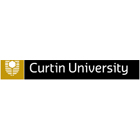Graduate Certificate in Environment and Climate Emergency
Graduate Certificate in Environment and Climate Emergency
In this course you will gain knowledge of the fundamental concepts and major issues relevant to global environmental and climate crises, and build skills to create positive change at a local, national and global levels. This course comprises three core units and one optional unit focusing on the understanding, reflection…
Categories
COURSE DESCRIPTION
In this course you will gain knowledge of the fundamental concepts and major issues relevant to global environmental and climate crises, and build skills to create positive change at a local, national and global levels.
This course comprises three core units and one optional unit focusing on the understanding, reflection and investigation of key sustainability issues. There is a strong emphasis on professional practice to strengthen your career opportunities and professional development.
A major component of your studies will be engaging with climate emergency issues and applying your learnings to develop strategic responses.
You will become familiar with real-world practices through lectures and workshops delivered by consultants from industry and government. You will also learn practical skills in social research, analysis and broad stakeholder engagement.
At the Legacy Living Laboratory (L3) – a state-of-the-art data visualisation space and research facility – you will expand your knowledge and build capabilities to contribute solutions to biodiversity loss, extreme climatic events and other issues affecting communities globally.
When you successfully complete the course, you may transfer to the graduate diploma and then subsequently enrol in the master degree.
The course caters for both full-time and part-time students.
What jobs can the Environment and Climate Emergency lead to?
Organisations are increasingly working with environment and sustainability consultants in order to be environmentally responsible and to improve their stakeholder relationships.
This course will prepare you for employment in various public and private sectors that require specialist knowledge of applying environmental and sustainability practices to all levels of business and organisations.
Industries
Urban/environmental planning
Government
Construction
Engineering
Regional development
Conservation and environment
Land use
Resources and energy
Transport
What you’ll learn
Apply relevant disciplinary knowledge to the concept of sustainability and planetary health
Apply critical and analytical skills within a sustainability framework
Identify, locate, critically evaluate and synthesise relevant and reliable information sources on sustainability
Communicate ideas and information, verbally and in writing, to a range of target audiences
Use communication technologies to effectively collect information and communicate findings
Identify and apply successful learning strategies
Identify and apply international good practice to local sustainability issues
Identify the complexities and benefits multiculturalism brings to sustainability, including indigenous cultures
Demonstrate leadership ability within sustainability practice to work effectively as a team and independently when appropriate
REQUIREMENTS
Applicants for a Master Degree (Coursework) are required to meet University academic and English language entry standards; Subject to the duration of the course applicants usually require a Bachelor Degree or equivalent (and may require relevant work experience), Bachelor Honours Degree, Graduate Certificate or Graduate Diploma.
Certificate in Advanced English (CAE): Grade C; and Pearson Test of English Academic: 60. IELTS (International English Language Testing System) – Listening, Reading, Writing, and Speaking – 6.0; Overall band score 6.5; TOEFL (Test of English as a Foreign Language) 79 (overall) Reading 13 Listening 13 Speaking 18 Writing 21.
EDUCATIONAL INSTITUTION
Curtin University is Western Australia’s largest and most culturally diverse university with Australia’s third largest international student population. Around 60,000 students from more than 130 countries study a Curtin degree, at locations including Perth, Margaret River, Kalgoorlie, Sydney, Malaysia and Singapore. Our cultural diversity adds a rich and valuable dimension to the campus atmosphere, preparing all graduates to live and work effectively in an increasingly global environment. We offer a range of industry-aligned undergraduate and postgraduate courses in business, humanities, health, engineering and related sciences. We also have a long-standing focus on Aboriginal and Torres Strait Islander education and culture, supported by our Centre for Aboriginal Studies.Curtin is widely recognised for its practical research that is focused on solving timely, real-world problems. In recent years our research activity has grown significantly, driving our rapid rise up the international university rankings.As a university that never settles, we will continue to develop existing partnerships and establish new ones in areas relevant to our research and teaching.




